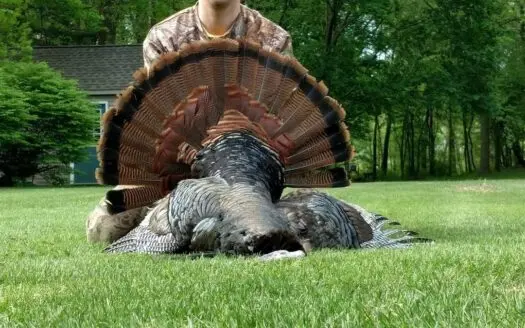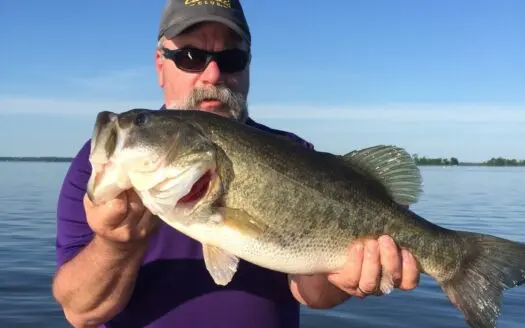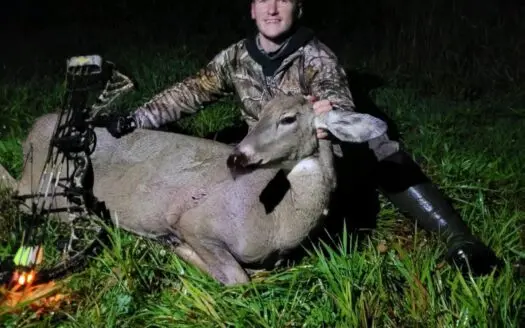How to Find the Perfect Hunting Property
Determine Your Budget
Before diving into your search for hunting land, it’s essential to establish your budget. Every real estate buyer has unique financial circumstances, and determining what you can afford involves assessing credit history, income and financing abilities.
Loan Options for Hunting Land
Financing a hunting property differs from purchasing a residential home in many ways. Some of these factors influence which loans are eligible for your real estate journey. For example, some land loans require higher down payments and shorter repayment terms. Research lenders who specialize in rural land and recreational property loans.
Price Per Acre
The value of land depends on a long list of influences, including region, accessibility, land quality, habitat features and proximity to amenities. Compare the price per acre of your desired property to similar land tracts in the area. While lower-priced land may seem appealing, it’s important to evaluate whether it meets your needs before committing. Consult trusted foresters, land surveyors and hunting property experts to ensure you’re getting the best deal.
Neighboring Properties
Neighboring landowners can significantly impact the price of your land property and the quality of your hunting experience. Ask your potential neighbors about nearby hunting clubs, conservation efforts and the general practices of surrounding landowners. Well-managed neighboring properties can contribute to healthier and larger wildlife populations and overall better hunting opportunities.
Find the Right Location
Choosing the right location for your hunting property is an important decision that requires careful consideration of a number of factors. One of the first decisions you’ll need to make is whether you want to live on your hunting land full time, part time or use it solely for recreational retreats. If you won’t be living there full-time, you should consider properties within a reasonable drive from your home. While the region of the country and your state alter the definition of what is a close drive, remote tracts may offer better seclusion but make frequent trips impractical. Determine the acreage your resources will allow you to comfortably operate to discover what land management practices will work best for you.
Hunting Property Size
The size of your hunting property should align with your recreational goals. If you plan to manage deer and other wildlife populations effectively, you’ll need enough land and brush to allow the animals to roam and replenish each season. Small properties can still be effective for hunting, but they may require more thoughtful management to avoid adding too much pressure to the local game.
Evaluate the Quality of Wildlife
Evaluate the quality of the wildlife on your property. Look for signs of healthy deer populations, such as well-worn trails, bedding areas, scrapes and rubs. Research the local deer density and talk to neighbors about game activity. Set up trail cameras to monitor wildlife patterns before purchasing your land.
Ideal Hunting Land Features
A great hunting property should include natural food sources, readily available water and adequate cover for making habitats.
Food Sources: Oak, pecan and beech trees provide some of the most essential nutrients for deer. Establish food plots around your property to enhance wildlife attraction.
Water Sources: Creeks, ponds, springs and wetlands ensure that animals have reliable hydration throughout the year.
Bedding Areas: Thick brush, foliage and designated safe zones allow deer to rest and escape pressure.
Stand Placement & Wind Direction
Proper stand and blind placement are essential for a successful hunting experience. Positioning stands based on prevailing wind directions prevents deer populations from detecting your scent. Look for natural pinch points, ridgelines and transition zones where deer frequently travel.
Multi-Purpose Land Use
Many hunting property buyers seek land that serves multiple purposes. Whether you’re interested in farming, ranching or simply having space and freedom for other outdoor activities. Selecting land with multiple uses increases its value and income potential. Some multi-use properties may qualify for conservation easements, which can offer tax incentives while protecting natural habitats on your land.
Types of Hunting Properties
Determine what type of hunting land best suits your needs and aspirations to narrow down your search. Some properties offer a mix of wooded areas and open fields while others may have structures like cabins or houses. Key features to consider include:
- Trees suitable for tree stands
- Ponds or lakes for fishing
- Trail systems for easy navigation
- Flat terrain for building structures
- Established food plots and stands
Enhance Your Hunting Property
If you want to maximize the potential for your land, consider adding features such as food plots, creating watering holes or setting up mineral stations. Consult a trusted forester or wildlife management expert who can help you develop a plan that promotes long-term success.
Tracking Deer Movements
By understanding how the deer on your land move about the property, you can create more strategic hunting operations. Look for signs such as scrapes, rubs, and trails. Invest in trail cams to provide yourself insight into the wildlife’s behavior allow you to make informed decisions about stand placement and hunting strategies.
Navigate Hunting Laws & Tags in Your State
Each state has different regulations regarding landowner hunting tags, hunting land ownership and conservation programs. Research local hunting laws and consult a reputable hunting real estate professional to understand your rights and any restrictions before purchasing your property.
Why Trust United Country in Your Hunting Property Journey
United Country Real Estate is the leader in land and hunting property sales, and is home to the largest network of niche property specialists. Browse through the exclusive UC Hunting Properties website to discover the perfect property for your lifestyle or get in touch with one of the many industry-best hunting real estate professionals.
Whether you’re seeking a remote hunting cabin in the Deep South or a massive ranch and wildlife tract in the mountains of Montana or even a trophy game retreat, United Country Real Estate is where your journey begins.
Sources:



